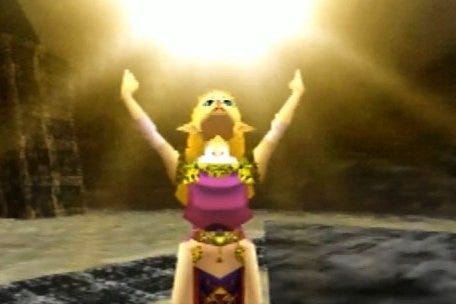
The most vivid memory I have of childhood is sitting in the back of our dirty red Ford Orion on a violet-hued winter evening. Orange beads wash in from passing streetlights and throw chevrons of illumination across me and the boxes I hold close to my body. It’s March 1999, we’re returning from Norwich with my eighth birthday present, a large box I insist on holding, with a red vertical banner down its face, holding a Nintendo 64. Nestled between it and my chest, where it can’t fall, is a smaller box – black and gold – inside of which is a copy of The Legend of Zelda: Ocarina of Time.
The game was released the year before. First in Japan on the 21st November and then a couple of days later in the U.S., before finally appearing in the U.K. on the 11th December. I spent an agonising Christmas watching TV spots, reading magazine features, and knowing I wasn’t getting it, staring mournfully instead at the Sega Mega Drive in the corner.
Three months later, however, the Orion’s windows are corrugated with rain and Ocarina of Time is so close I can taste it. It’s hard to describe how it felt to own my first console in a house in which ownership of my belongings was fluid and influenced mostly by my parents’ moods. For this car ride, at least, the Nintendo 64 is mine. That won’t stop everyone else taking it: my father to play Castlevania 64 over and over, my brother to pretend it’s his when chatting to friends over games of Goldeneye, and my mother to punish me. But on that winter evening, swallowed by the dusty Orion’s seats, an N64 and, more importantly, Ocarina of Time belonged to me.




